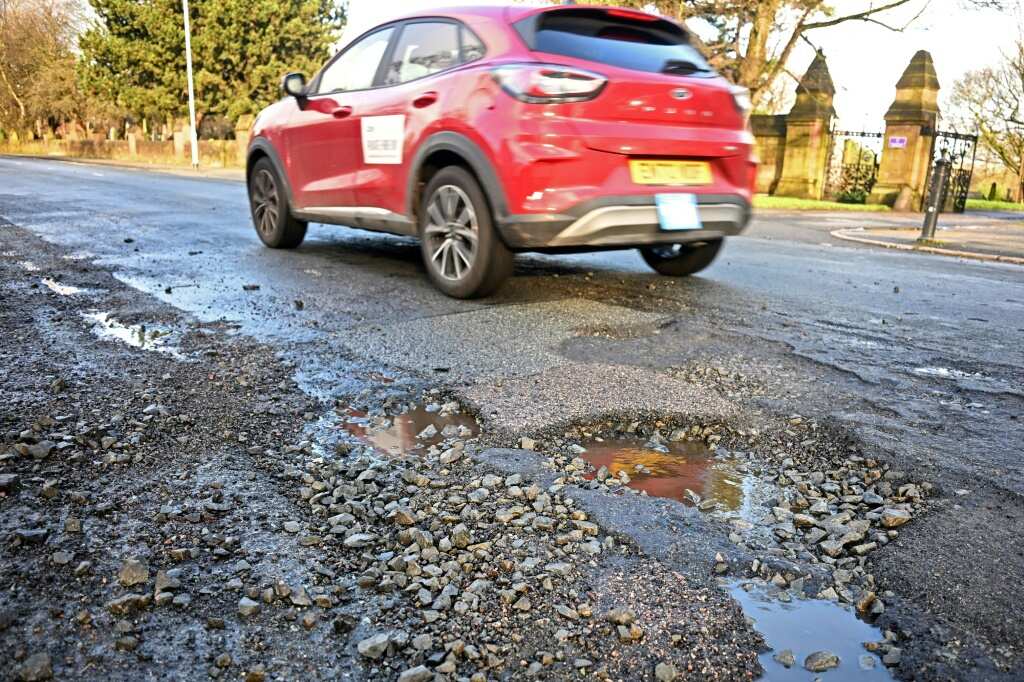




A chemical reaction in concrete known as alkali-silica reaction (ASR) is causing streets to self-destruct in Omaha, Nebraska, and other areas [b41d94e3]. The reaction occurs when silica in the gravel used to make concrete reacts with alkali in Portland cement, creating a gel that expands when wet. This expansion leads to cracking and deterioration of the pavement. The problem appears to be worse in roads paved between 2000 and 2015, coinciding with the time Omaha stopped using fly ash in its concrete mix. Fly ash, a byproduct of coal-burning, was previously used to slow the progress of ASR [b41d94e3].
Omaha has recently approved a new concrete formula with increased limestone content to improve durability. However, the city still faces at least 20 years' worth of deteriorating roads. The only way to prevent ASR completely is to use low-silica sand and gravel, which is hard to find and costly to transport. Regular maintenance, such as sealing joints in the road and overlaying with asphalt, can help extend the life of the concrete. Scientists and engineers are actively working on finding solutions to address the self-destructive nature of concrete caused by ASR [b41d94e3].
U.S.-grown soybean oil is being used as a concrete durability enhancer in roads, improving the nation’s infrastructure while providing another market for soy. Mac Marshall, vice president of market intelligence for the United Soybean Board, highlights the benefits of using soy-based asphalt stabilizers, including greater longevity of roads, reduced maintenance costs, and improved transportation for farmers [236972b3]. The investment in road infrastructure is seen as a positive return for farmers and the overall ecosystem. The versatility of soybeans allows them to be used in various products, contributing to the advancement and improvement of transportation infrastructure.
The issue of street deterioration caused by chemical reactions in concrete is not unique to Omaha. A recent report highlights that roads in England and Wales are also at 'breaking point' due to potholes, with repairs reaching an eight-year high. The Asphalt Industry Alliance (AIA) expects local councils to fix two million potholes in the current financial year, a 43% increase from the previous year. The report also reveals that 47% of local road miles are in good condition, 36% are considered adequate, and 17% are rated as poor. The backlog of local road repairs has reached a record £16.3 billion, a 16% increase from the previous year's £14 billion. In response, the government announced in October 2023 that it would provide £8.3 billion of additional funding over 11 years to address the pothole problem in England [aaafcbd2].
The poor state of roads in England and Wales is seen as a reflection of the crumbling infrastructure in the country. Potholes have become a major concern for British households, adding to the overall despondency about the country's economic outlook. Potholes are predicted to be a significant topic in the upcoming UK general election, with Prime Minister Rishi Sunak pledging £8.3 billion for road repairs. However, critics argue that this amount is insufficient to tackle the problem effectively. Potholes have earned various nicknames and can cause significant damage and accidents. To draw attention to the issue, creative efforts have been made, such as filling potholes with gravel and spray painting around them. In addition, the University of Liverpool is developing a pothole-filling robot powered by AI [f9067c15].
Meanwhile, in Uganda, poor road networks in the city of Kampala have become a significant concern [7af2c72a]. Limited funding has resulted in only 29% of the city's road system being paved. Potholes and poor drainage in Kampala hinder investment, job creation, and foreign investment. Workers in Kampala lose 52 days' worth of work time annually due to traffic congestion. Potholes are estimated to cost 7% of Uganda's GDP annually. Poor roads also affect the health of citizens, leading to respiratory diseases and decreased productivity. The government's failure to address potholes increases car repair costs, food prices, and poverty levels. The city's infrastructure needs to be fixed [7af2c72a].
The issue of potholes extends beyond the UK and Uganda, highlighting a global problem of crumbling infrastructure. Potholes not only affect the economy but also pose risks to public safety and health. Adequate funding and long-term road maintenance policies are crucial to address this issue effectively [f9067c15] [7af2c72a].